

The Project is financed by European Union and Republic of Turkey



 PLATFORM
PLATFORM
We can protect both our health and nature while consuming.

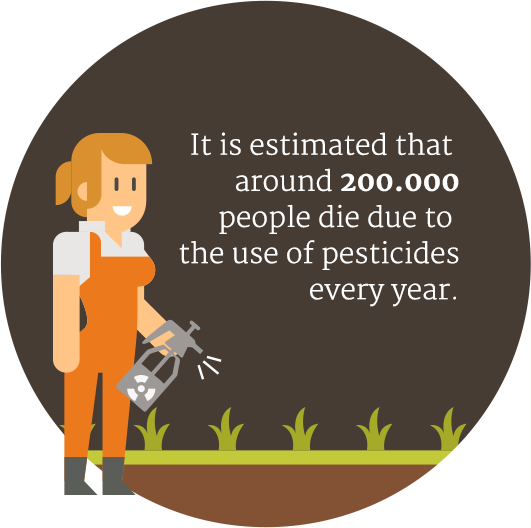
Organic products are safer for health because they do not contain pesticides, chemical fertilizers, GMOs and have been monitored each step of the process from production to consumption.
Pesticides, a kind of chemical, are being used for combating bugs and fungi in agriculture practices. Over 17 000 type of pesticides are being sold throughout the world. The use of pestisides has doubled in Turkey and in the rest of the World since 1990. It is estimated that around 200 000 people die due to the use of pesticides every year.

Pesticides can remain on products, and may not be rid of with washing. Furthermore, the pesticides can be stored in plant tissues in cases where they are applied into soil water. Unmonitored agriculture products risk carrying pesticide residues. Consuming food that contains pesticides can suppress the immune system and can also cause nervous system diseases, breast and other types of cancers, reproductive dysfunctions and hormonal disorders. Pesticides can reach babies through breastfeeding and in addition, it can be harmful to fetuses as studies show that pesticide residues can be found in the funicle.

Plants store more nitrates (NH3) since nitrogenous manure is overused on products produced with industrial farming practices. Nitrate transforms to nitrite inside the digestive system. Nitrite not only decreases the respiration capacity for blood cells, it also with its microorganism activities transforms to carcinogens.

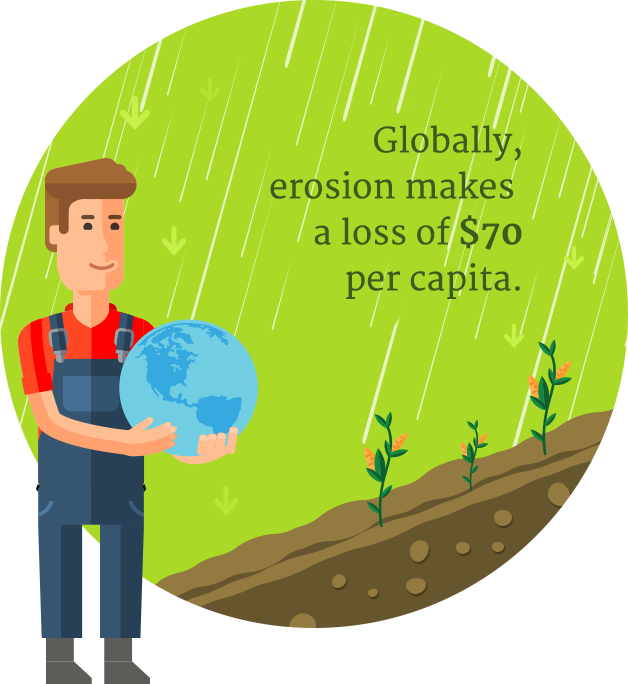
Soil in areas where organic farming is carried out has more organic matter. That is why the absorption and water-holding capacity, ventilation and biological activities are higher. The main principle of organic farming is to prevent erosion, and in doing so, the health and productivity of the soil is being protected. Erosion is observed in 59% of crop fields in Turkey. Globally, erosion makes a loss of $70 per capita.

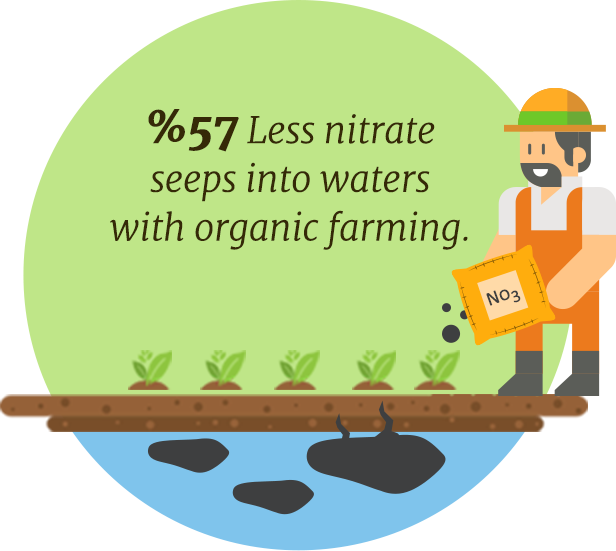
Studies have shown that because there is no use of pesticides in organic farming, there is less or even no pollution in underground and surface water. It is reported that in organic farming, the levels of nitrates (NH3) seeping into water per unit area are 57% less than that of industrial farming. Organic farming is encouraged on drainage basin areas due to their high water quality.
Organic farming saves biodiversity.
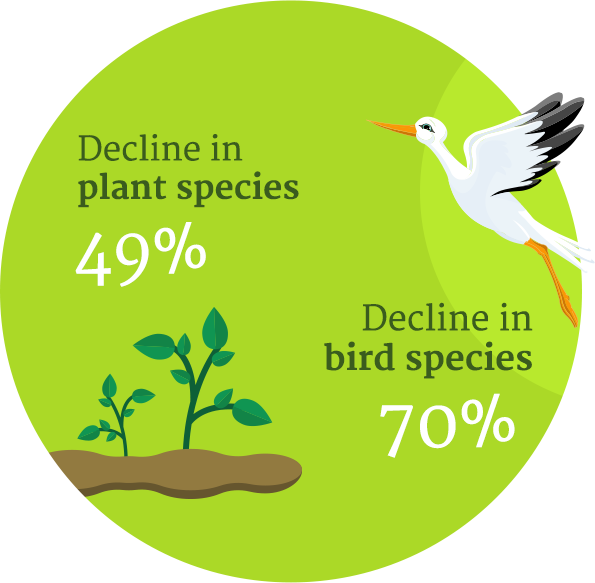
As there is no usage of chemical fertilizers, organic farming gives more favorable life-sustaining spaces for plant and animal species as compared to industrial farming. It is reported that industrial farming practices are leading to a 49% decline in plant species and 70% decline in bird species. Along with bald ibis, a bird found in Turkey, 37% of endangered bird species in the world is being affected by industrial farming practices.
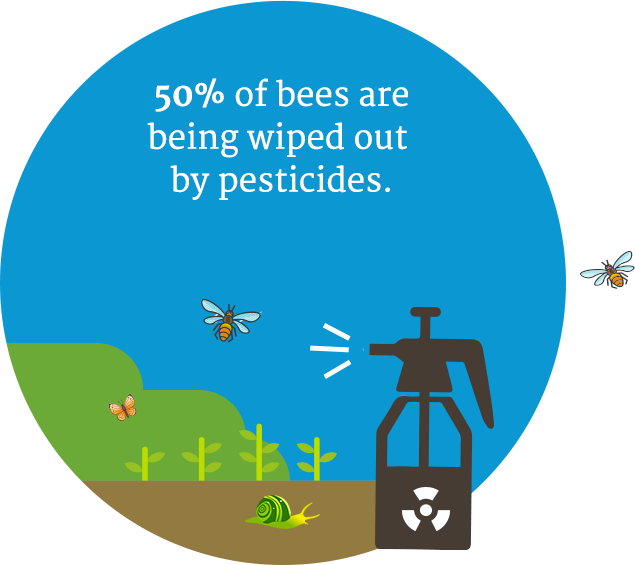
Bees have a significant effect on ecosystems because of their role in pollination. Yet, 50% of bees are being wiped out by pesticides. Pesticides targeting bugs are also killing the predators eating these bugs.
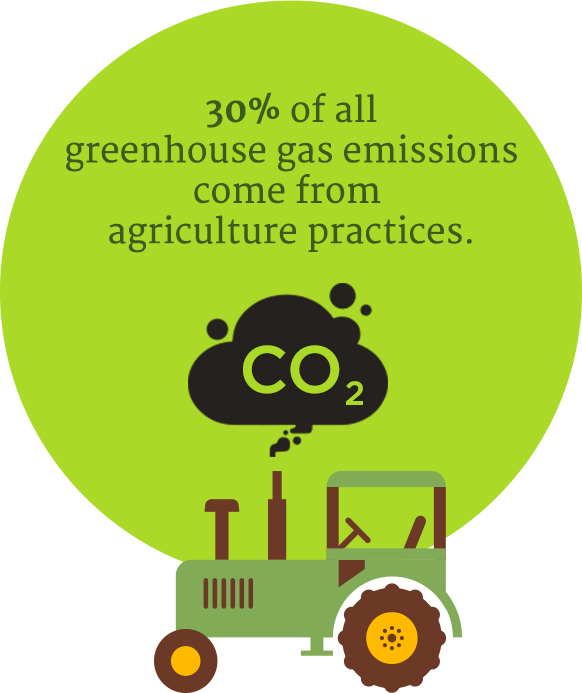
Compared to industrial farming, CO2 emissions from organic farming are 50-60% less per unit area. According to expert findings, with organic livestock, methane gas emissions are higher, however, the methane that reaches the atmosphere is less. Because no chemical fertilizers are used, there are less nitrates emitted in organic farming. No air pollution is created because no pesticides are used. Lastly, because the amount of organic matter in soil is increasing, the amount of carbon being retained in the soil is increasing.